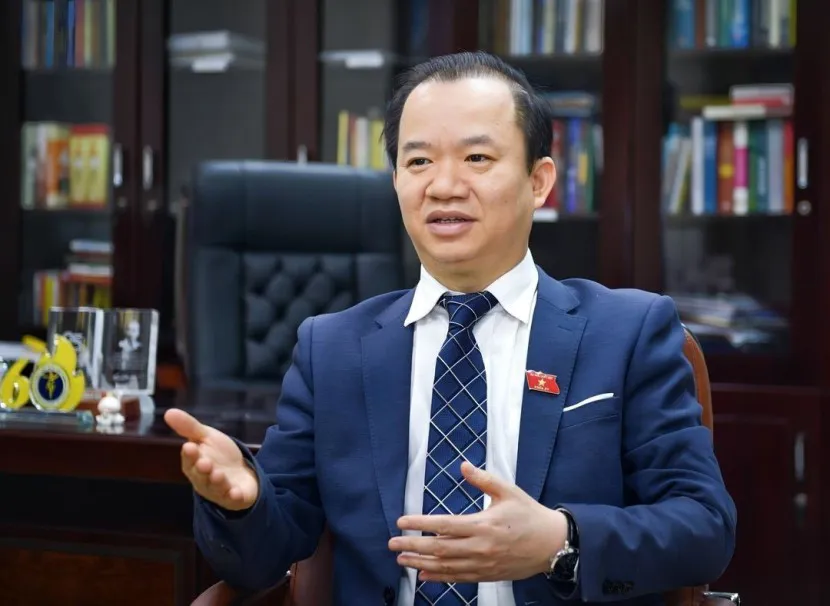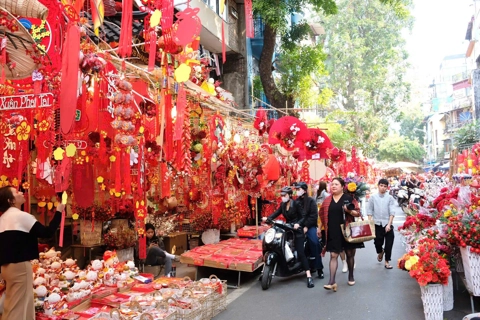A golden opportunity to promote the country's image
Lessons from BlackPink's concerts in Hanoi are expected to help Vietnam quickly integrate into the world's entertainment industry.
The Hanoi Tourism Department has informed that more than 170,000 people visited Hanoi in the two days of the BlackPink concert, grossing total revenue of VND630 billion (US$27.4 million) for the city.
The benefits of having the group perform in Vietnam are very obvious. But have we taken full advantage of such opportunities to promote the country's image and earn money?
Associate Professor, PhD. Bui Hoai Son, a member of the National Assembly's Committee on Culture and Education, analyzed this phenomenon with The Hanoi Times.
The potential of Vietnam's entertainment market
With the recent BlackPink effect, how do you comment on the Vietnamese audience's needs?
The BlackPink event in Hanoi can show the great appeal of this girl band.
Although the ticket prices are not cheap, a part of the audience is still willing to pay for quality and memorable musical experiences. This demand also proves the potential of Vietnam's entertainment market. If we have quality products and give more thought to the entertainment industry, Vietnam's cultural and artistic values could be boosted, like what BlackPink has achieved.
| BlackPink is a money-making machine in the South Korean cultural industry. Photo: YG |
What do you think Vietnam can benefit from the performances of world stars in the country?
We have seen how big the attraction of BlackPink is in Vietnam. Hotel rooms and air tickets were sold out, the stadium was full, and information about BlackPink dominated the newspapers and social networks. Hanoi also benefits greatly from the BlackPink event in terms of economic values and brand.
BlackPink's concert in Vietnam has made headlines around the world. This creates an opportunity to showcase the capital's image and to improve the national entertainment industry.
Valuable experience
Through the BlackPink event, what can Vietnamese companies learn about organizing music shows in cooperation with their foreign counterparts?
We can certainly learn a lot from this event in Vietnam. First, as an organizer, you must be thoroughly and professionally prepared in all aspects, from stage preparation, sound, lighting, and security, to customer service and event management.
Through the BlackPink event, we also learn the lesson of copyright issues.
| Bui Hoai Son, member of the National Assembly Committee for Culture and Education. |
So what can the Vietnamese cultural industry learn from the Korean experience?
We can learn how to create quality and creative entertainment content, invest in artists and bands, and build a brand to attract customers and the attention of domestic and foreign audiences.
Promoting tourism through the entertainment industry is also included. However, it's necessary to protect and promote our national cultural identity to maintain the diversity and uniqueness of Vietnamese culture in drawing in tourists and providing a different experience.
South Korea has long-term and sound investments in the cultural industry. Vietnam released a strategy for cultural industries in 2016, but many barriers remain. What are your reflections on the issue?
The development of the cultural industry is a complicated process that requires long-term investment and the development strategies show shortcomings.
There are no specific incentives for the cultural industry in terms of taxes, land, public-private partnerships, and management and use of public property. So the supporting environment for the development of cultural industries is not really favorable.
Regarding human resources, I think having a more synchronized training system in culture, cinema, music, and art is necessary. To develop the domestic cultural industry, we must invest in and care for local artists, culture, and art managers.
Thank you for your time.













